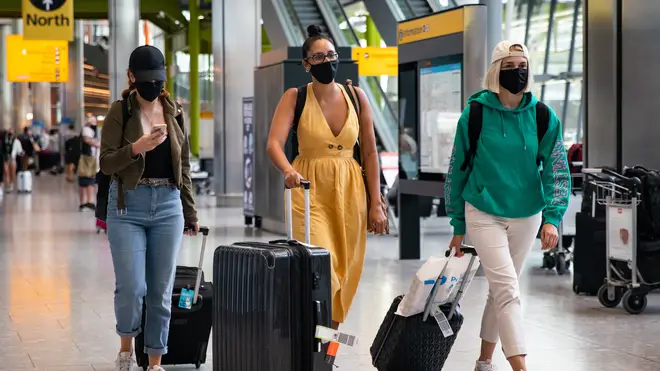
Nick Ferrari 7am - 10am
27 August 2020, 18:19

The number of people emigrating to the UK has reached its highest level in four years, with a particular boost in non-EU nationals coming over to study.
In the 12 months up to March this year, around 715,000 people moved to the UK, while 403,000 left - leaving the balance of people is estimated at around 313,000.
This is the highest balance since March 2016, when net migration was an estimated 326,000.
According to the Office for National Statistics, which released the data on Thursday, the increase in immigration and net migration is believed to be due to an increase of non-EU nationals travelling to the UK to study.
It noted that net had increased by around 92,000 people since last year - although the recent report does not take into account the effect of the pandemic.
Among the numbers of people coming to the UK last year, 257,000 people were arriving to study, while 458,000 were coming to work, be with family, or for other reasons.

"English peoples' approach to coronavirus is petulant"
Immigration from non-EU countries, meanwhile, rose 31% in the last year to 437,000, which is the highest increase since records began in 1975.
This can be compared to immigration from EU countries, which fell to its lowest level (195,000) since 2012.
These figures are considered experimental estimates due to the ONS underestimating some EU net migration data in previous years.
Jay Lindop, director of the Centre for International Migration at the ONS, said migration levels in the last year had begun to rise "after a period of stability" and up until the pandemic took hold around the world.
This increase, he added, was mainly due to non-EU student arrivals from China and India.
Since the pandemic, there is believed to have been a sharp fall in migration, which has also been noted in a lower number of visas being issued.
The number of visas granted in the year up to June dropped 29% with around 12% issued for study and 7% for work.
Rob McNeil, deputy director of the Migration Observatory at the University of Oxford, said there had been "a total collapse" in the number of visas granted in the second quarter of the year due to the pandemic.
He said: "The impacts are seen right across the board, with many fewer people getting visas for work, study and family.
"While statistics for the first quarter of the year suggested non-EU net migration had sharply increased, this is now ancient history.
"The big question for the future is how long these impacts last and whether we start to see a recovery in non-EU migration later in the year-particularly among students who usually get their visas in the third quarter."